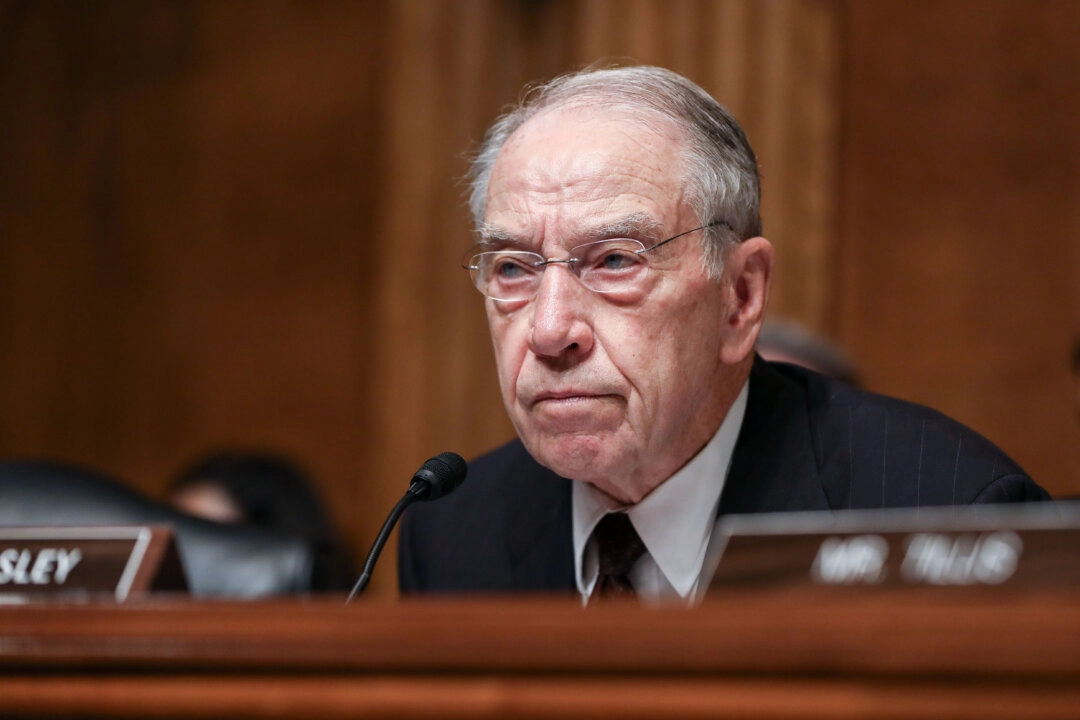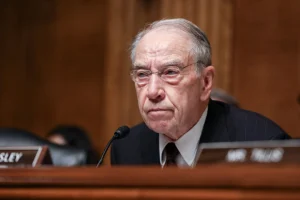
Sen. Chuck Grassley (R-Iowa) during a Senate Judiciary hearing on Capitol Hill in Washington on Oct. 22, 2019. Charlotte Cuthbertson/The Epoch Times
President Donald Trump would veto a bipartisan Senate bill that would give Congress more power over tariffs if it reaches his desk, the White House said on April 7, warning the legislation would weaken the chief executive’s ability to respond to foreign threats and protect national security.
In a formal statement, the Office of Management and Budget said the Trade Review Act of 2025 (S. 1272) would “dangerously hamper the President’s authority and duty to determine our foreign policy and protect our national security.”
The OMB said the bill would limit the president’s ability to impose new tariffs by requiring congressional approval within 60 days and by requiring the administration to notify Congress within 48 hours of imposing or increasing duties.The Beef Over Beef: A Dispute About Tariffs and Protectionism, but Not in the Way You Imagine It
Cantwell likened the measure to the War Powers Act of 1973, describing it as a necessary check on presidential overreach in matters that directly affect the U.S. economy.
She said that recent tariffs targeting a broad swath of trading partners risk undermining longstanding global alliances and trade agreements that benefit U.S. exporters and manufacturers.“The Administration strongly opposes S. 1272, the Trade Review Act of 2025,” the OMB said. “By requiring Congressional approval for nearly every tariff increase, S. 1272 would severely constrain the President’s ability to use authorities long recognized by Congress and upheld by the courts to respond to national emergencies and foreign threats.”
The legislation was introduced last week by Sen. Maria Cantwell (D-Wash.) and Sen. Chuck Grassley (R-Iowa), who say Congress must reassert its constitutional authority over trade. Cantwell, speaking on the Senate floor, said the bill is intended to ensure a “rules-based” trading system and prevent abrupt tariff policies that could destabilize markets.
“We cannot have arbitrary policies create chaos and uncertainty,” Cantwell said. “These kinds of chaos and uncertainty kill business investment and make for very challenging stock market assessments of investments for the future based on predictability.”
The Beef Over Beef: A Dispute About Tariffs and Protectionism, but Not in the Way You Imagine It
Cantwell likened the measure to the War Powers Act of 1973, describing it as a necessary check on presidential overreach in matters that directly affect the U.S. economy.
She said that recent tariffs targeting a broad swath of trading partners risk undermining longstanding global alliances and trade agreements that benefit U.S. exporters and manufacturers.






